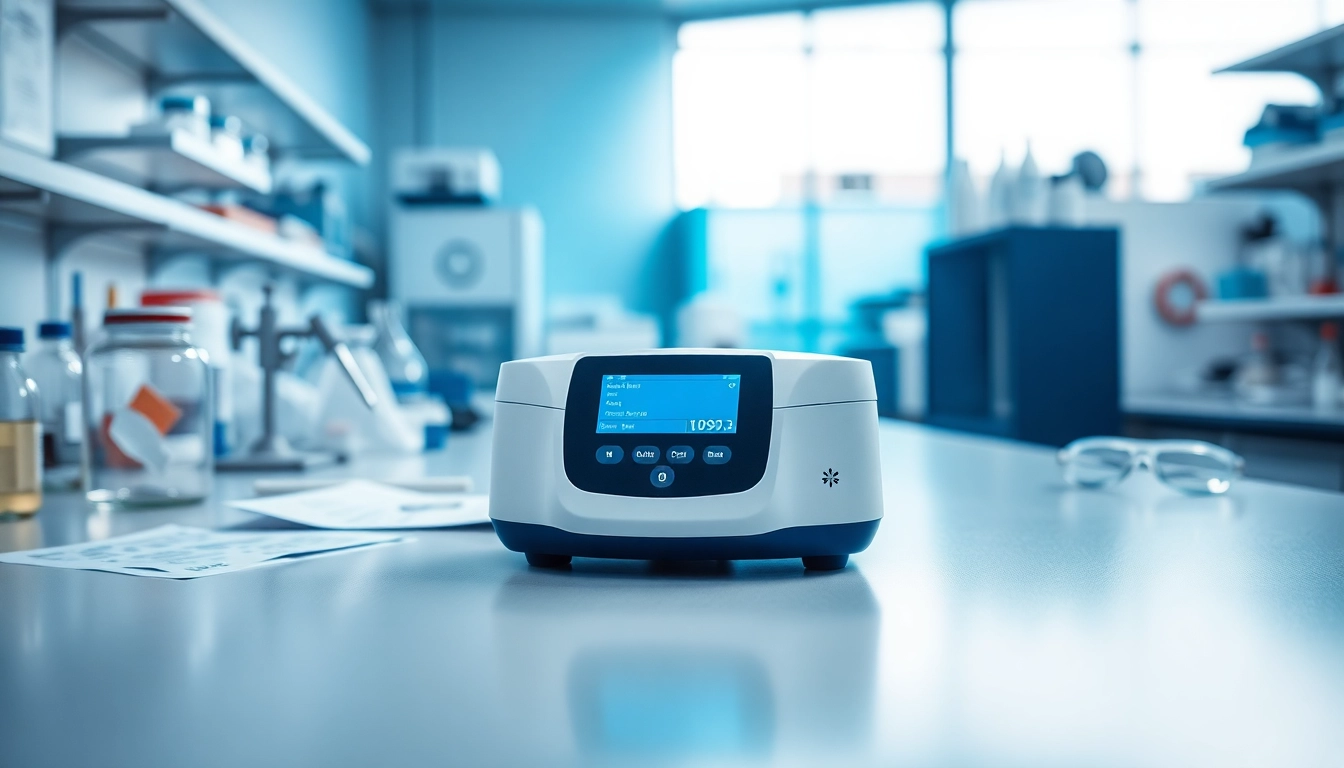Understanding the Care Certificate and Its Importance
The Care Certificate is a fundamental component for all healthcare support workers and is essential for ensuring high-quality care across health and social care settings. It signifies the basic skills and knowledge needed to deliver safe and effective care. By completing the Care Certificate, workers become competent in key areas that govern their roles, enhancing the overall standard of care provided to clients.
The significance of mastering care certificate answers all standards cannot be overstated. Each of the 15 standards contained within the certificate equips workers with the necessary tools to navigate the complexities of care environments, from handling sensitive information to promoting dignity and respect.
Overview of the Care Certificate
The Care Certificate is composed of 15 standards that health and social care workers are required to meet. These standards cover a range of topics including personal development, communication, and duty of care. The Care Certificate acts as a benchmark for competence to ensure that all workers meet a foundational level of knowledge and skills before they can engage directly with clients.
Formulated in collaboration with various stakeholders in the sector, the Care Certificate aims to provide clarity and structure in employee training. Moreover, caregivers must display the ability to implement what they learn in real-world settings effectively.
Significance of Completing All Standards
Completion of all standards within the Care Certificate is essential not only for compliance but also for fostering a culture of continuous professional development. By fully engaging with the Care Certificate, workers understand not only their roles but also the broader impacts they have on their clients’ lives.
Organizations benefit significantly from ensuring their staff meet the Care Certificate Standards. This not only enhances the quality of care provided but also builds a workforce that is well-versed in best practices, ethical considerations, and patient rights.
Common Misconceptions About the Care Certificate
Many people confuse the Care Certificate with formal qualifications such as diplomas or degrees; however, it is a practical training framework aimed at ensuring foundational skills are met. Another common misconception is that the Care Certificate is merely a formality. In reality, it serves a critical function in promoting high standards of care and protecting both clients and workers alike.
Detailed Breakdown of Each Care Standard
Standard 1: Understand Your Role
This standard emphasizes the importance of understanding one’s role within the care setting. Care workers must recognize their duties and the responsibilities they hold. A clear understanding of these elements allows for better service delivery and accountability.
Care workers are trained to articulate what is expected of them, which contributes to a more effective and cohesive work environment. Moreover, it enhances communication and diminishes misunderstandings between coworkers and clients.
Standard 2: Your Personal Development
Standard 2 focuses on the importance of ongoing personal development in the care sector. Workers are encouraged to actively engage in training and reflection to enhance their capabilities. This includes seeking feedback, participating in further education, and being proactive in their career growth.
Continuous professional development is essential to stay updated on best practices, evolving care standards, and innovations in patient care, ensuring that every worker can deliver the highest level of support and care.
Standard 3: Duty of Care
Understanding the duty of care is vital for every caregiver. Workers must know their responsibilities in safeguarding clients’ safety and well-being. This includes respecting the rights of individuals, understanding the implications of neglect, and engaging in practices that promote client protection.
By adhering to this standard, workers reinforce the ethical obligations essential in the health and social care sectors, which ultimately contributes to a culture of respect and service excellence.
Standard 4: Equality and Diversity
Standard 4 highlights the importance of recognizing and respecting diversity within care settings. Workers are trained to provide personalized care that acknowledges the unique backgrounds, preferences, and needs of each individual. This standard not only promotes inclusiveness but also enhances the effectiveness of care.
By embracing diversity and cultural competence, care workers can build stronger rapport with clients and cater more effectively to diverse populations.
Standard 5: Working in a Person-Centred Way
This standard underscores the necessity of delivering care that is bespoke to the individual’s specific needs. This means actively engaging clients in their care plans and making decisions that prioritize their preferences and choices.
By focusing on person-centred care, workers promote autonomy and empower clients, reinforcing their self-worth and dignity.
Standard 6: Communication
Effective communication is at the heart of healthcare. Standard 6 trains workers in various communication styles and techniques that ensure clear and compassionate interaction with clients, families, and colleagues. Understanding verbal and non-verbal cues is crucial, as is adapting communication to suit various needs and preferences.
Additionally, this standard highlights the importance of documentation and information sharing within care settings, ensuring accountability and continuity of care.
Standard 7: Privacy and Dignity
Caring for individuals with dignity and respect is paramount. Standard 7 instills in workers the importance of maintaining confidentiality and protecting personal information. Workers learn practical ways to uphold individuals’ rights to privacy, which is essential for the therapeutic relationship.
By respecting confidentiality and promoting dignity, caregivers enhance trust and improve the overall quality of care.
Standard 8: Fluids and Nutrition
This standard highlights the knowledge and practices related to nutrition and hydration essential for optimal health and well-being. Workers are trained to monitor dietary needs and adapt care to support optimal nutrition across diverse client groups.
Proper understanding of hydration and nutrition not only improves physical health but also enhances recovery and overall quality of life for clients.
Standard 9: Mental Health, Dementia, and Learning Disabilities
Standard 9 provides insights into understanding mental health issues, dementia, and learning disabilities. Care workers gain knowledge on how to approach and support individuals with these specific conditions, promoting effective care and support.
By understanding the nuances required for this demographic, workers can create tailored care plans that meet both physical and psychological needs.
Standard 10: Safeguarding Adults
Protection of vulnerable adults is a critical aspect of care work, and Standard 10 equips workers with knowledge of how to identify and report potential risks. This includes understanding abuse and neglect and knowing the appropriate procedures for safeguarding.
By adhering to these guidelines, workers ensure that the rights of individuals are upheld and that their safety is prioritized in all care practices.
Standard 11: Safeguarding Children
Similar to safeguarding adults, this standard focuses on protecting children within care settings. Workers are trained to understand the unique risks faced by children and the specific protocols that must be followed to protect their well-being.
By effectively applying this standard, care workers can contribute to creating a safe and nurturing environment for children, minimizing risks and enhancing their development.
Standard 12: Basic Life Support
Basic life support techniques are essential skills for care workers in emergency situations. Standard 12 trains caregivers in life-saving practices, emphasizing the importance of acting quickly and effectively in critical instances.
Workers gain practical experience that prepares them for emergencies, ensuring that they can respond confidently and competently when needed.
Standard 13: Health and Safety
This standard covers essential health and safety regulations that all care workers must understand. Topics include identifying workplace hazards, understanding personal protective equipment (PPE), and following protocols to ensure both worker and client safety.
By fostering a culture of health and safety, care workers help protect themselves, their colleagues, and the individuals in their care.
Standard 14: Handling Information
Standard 14 emphasizes the importance of data protection within care settings. Care workers learn the principles of confidentiality and how to responsibly manage client information to prevent breaches.
This training is vital in maintaining the trust of clients and ensuring compliance with legal standards for information handling.
Standard 15: Infection Prevention and Control
Infection prevention and control procedures are critical, especially in healthcare environments. This standard educates care workers on best practices to mitigate the risk of infection and maintain hygiene.
Workers learn practical techniques for cleanliness and infection management, which are essential for preserving the health and safety of clients and staff.
Strategies for Effectively Learning and Implementing Standards
Study Techniques for Care Workers
Effective study techniques are paramount for care workers looking to absorb the information necessary to complete the Care Certificate successfully. Techniques include structured study schedules, summarizing complex information, and employing visual aids like diagrams and charts to enhance retention.
Additionally, peer study groups can provide mutual support and foster a deeper understanding of various topics by encouraging discussions and real-life applications of knowledge.
Real-world Application of Each Standard
Theoretical knowledge is essential, but so is the ability to apply that knowledge in real-world settings. Care workers should practice role-playing scenarios to enhance their practical skills in real-time problem-solving, effective communication, and empathetic care.
Supervised practice sessions where workers apply their training in simulated environments further help to bridge the gap between theory and practice.
Resources for Ongoing Learning
Continuous professional development is vital for maintaining competency in care practices. Resources such as online courses, webinars, and workshops are excellent ways for care workers to stay informed about changes in best practices and regulations.
Additionally, subscribing to relevant journals and following influential figures in the healthcare field can provide insights into emerging trends and changes in legislation that may impact care work.
Assessment and Evaluation for Care Workers
How Assessments Work
Assessments are integral to ensuring that care workers meet the Care Certificate’s demands. Workers are typically assessed through practical evaluations, written questions, and direct observations during their training periods. This multi-faceted approach provides a holistic view of a worker’s competency.
Assessors are trained individuals who offer constructive feedback, which not only helps in grading but also in identifying areas where additional support may be necessary for the worker’s development.
Feedback Mechanisms and Continuous Improvement
Feedback is essential in fostering a culture of continuous improvement. Following assessments, workers should receive clear, actionable feedback to guide their future learning and development. Assessment frameworks should promote transparency and be used as learning tools instead of punitive measures.
Institutions can implement regular check-ins and performance reviews to nurture ongoing development and ensure that care workers remain competent and confident in their roles.
Common Assessment Challenges
Challenges in assessment can include inconsistent measuring standards or a lack of clarity in evaluation criteria. Care organizations must address these challenges by investing in robust training for assessors and establishing clear guidelines and expectations for assessments.
Additionally, providing resources and support to workers throughout the assessment process can mitigate anxiety and enhance performance.
Future Trends in Care Certification and Workforce Development
Changes in Training Requirements
As the healthcare landscape continues to evolve, training requirements for care workers will also require adaptation. Emerging health challenges, technological advancements, and changes in client demographics necessitate ongoing updates to the Care Certificate standards.
Anticipating future requirements, organizations should engage with regulatory bodies and educational institutions to ensure that training remains relevant and comprehensive.
The Role of Technology in Care Standards
Technological advancements play a pivotal role in the development and delivery of care certification programs. Innovations such as e-learning platforms, virtual simulations, and telehealth can enhance training, making it more accessible and interactive for care workers.
Moreover, technology can facilitate tracking of progress and competency, making it easier for care organizations to maintain compliance and support their staff in continuous learning.
Impact of Legislative Changes on Care Practices
Legislative changes frequently impact care practices and the training requirements surrounding them. Current movements toward greater patient rights and protection necessitate that care workers stay informed about changes in laws and regulations affecting their roles.
By aligning their training with legislative updates, care workers can enhance compliance and better serve their clients, ultimately resulting in improved care outcomes.















Leave a Reply